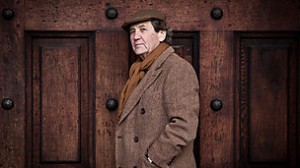 Just a reminder to those in the UK, The Most Dangerous Man in Tudor England is on tonight on BBC2 at 9pm. Here is the blurb from the BBC website:
Just a reminder to those in the UK, The Most Dangerous Man in Tudor England is on tonight on BBC2 at 9pm. Here is the blurb from the BBC website:
“Melvyn Bragg explores the dramatic story of William Tyndale and his mission to translate the Bible into English. Melvyn reveals the story of a man whose life and legacy have been hidden from history but whose impact on Christianity in Britain and on the English language endures today. His radical translation of the Bible into English made him a profound threat to the authority of the church and state, and set him on a fateful collision course with Henry VIII’s heretic hunters and those of the pope.”
Anne Boleyn owned a copy of Tyndale’s “The Obedience of a Christian Man”, the book which she persuaded Henry VIII to read and which stated that a monarch was only accountable to God, and therefore not the Pope. Anne also owned a copy of Tyndale’s 1534 New Testament and displayed it in her apartments so that her ladies could read it.
For those of you outside the UK, if it turns up on YouTube then I will add a link to The Anne Boleyn Files Facebook page.